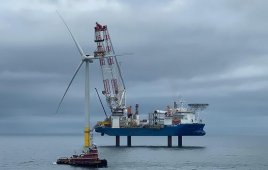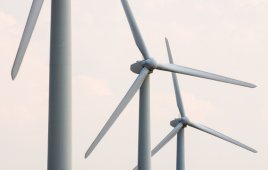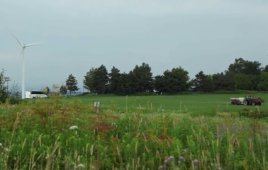A new energy storage study, “State of Charge,” released by the Massachusetts Department of Energy Resources (DOER), recommends a suite of new policy and program actions to support the deployment of hundreds of megawatts of advanced energy storage in the state over the next decade.

The new study includes a modeling analysis that demonstrates the potential impact of a much larger deployments of energy storage for the state – and up to 1.76 GW.
That goal is supported by a clean energy bill, recently signed into law by Massachusetts Governor Charlie Baker, that authorizes DOER to set energy storage procurement targets that utilities must meet by 2020. The agency is directed to decide by the end of this year whether to do so.
Todd Olinsky-Paul, project director for the Clean Energy States Alliance’s (CESA) Energy Storage Technology Advancement Partnership (ESTAP), applauds the state’s leadership: “If the state follows the study’s recommendations, Massachusetts will further solidify its position as a leader in energy storage policy. The comprehensive policy approach that Massachusetts has developed should serve as a model for other states to develop energy storage markets, grow the industry, and unlock the many benefits of energy storage for utilities, businesses and ratepayers.”
The landmark new study proposes specific state spending and policy changes that, it asserts, would result in 600 MW of new advanced energy storage in the state by 2025. This would produce more than $800 million in system benefits to Massachusetts ratepayers. according to the study, and reduce greenhouse gas emissions by 350,000 metric tons over a 10-year period – the equivalent of removing more than 73,000 cars from the road.
The study and accompanying legislation build on Massachusetts’s already impressive commitment of resources to energy storage, resilient power, and grid modernization. DOER has previously allocated $10 million to energy storage demonstration project deployment (the new study recommends doubling this to $20 million) and $40 million to community resilient power projects.
Beyond proposing new state spending on storage, the study recommends clarifying the regulatory treatment of storage, adding advanced storage to the state’s Alternative Portfolio Standard, allowing projects with storage to participate in future long-term clean energy procurements, creating an advanced storage working group at ISO-NE, and investing in storage workforce training, R&D and testing facilities.
The new study also includes a modeling analysis that demonstrates the potential impact of a much larger amount of storage for the state – up to 1.76 GW. The accompanying cost/benefit analysis indicates that billions in benefits would accrue to the state from such a large-scale deployment. The report notes current grid inefficiencies and the high costs of peak power, while explaining that sufficient energy storage resources could help alleviate the billions in peak power costs for ratepayers.
In addition to the state’s own efforts to expand energy storage, Massachusetts has received significant federal assistance. The U.S. Department of Energy Office of Electricity Delivery and Energy Reliability (DOE-OE) and Sandia National Laboratories, through ESTAP (managed by CESA), have been engaged with both DOER and the Massachusetts Clean Energy Center to support state energy storage policy and program development efforts. DOE and Sandia have provided technical assistance to municipalities around the state that are building energy storage-based resilient power projects with support from DOER grants.
CESA, U.S. DOE-OE, and Sandia intend to continue working with the state’s clean energy agencies as they implement the recommendations of the new energy storage study. With its new energy storage study and clean energy law, Massachusetts takes another giant step forward in its support of energy storage deployment and policy development.
Filed Under: Energy storage, Policy




